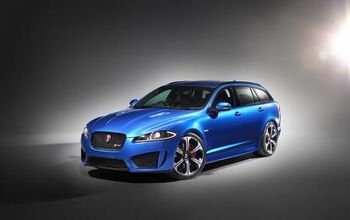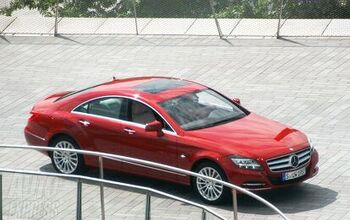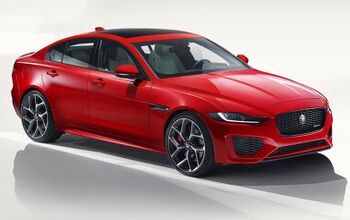Automakers Are Companies and Don't Care About You

Just like children who pledged allegiance to the flag before they started their school day, a number of grown adults are brand faithfuls who pledged their hard-earned dollars to a cause they believed is theirs to fight. For whatever reason, they are still steadfast in their belief that their brand is the best, their truck is better than all others and their car is the most reliable piece of transportation since God invented feet.
Yet, if there’s one thing that the last week, last month, last year, or even the last decade has taught us it’s that companies, specifically automakers, do not care about us. Not one bit.
Allow me to explain.
A piece published yesterday by Bloomberg called out Fiat Chrysler Automobiles on its failure to declare a defect in its highly embedded uConnect system found in 1.4 million cars and trucks to the NHTSA. While the defect itself, detailed by Wired late last month, thankfully wasn’t exploited between the time FCA first identified the issue and when they reported it (only after the Wired article went public), the situation is just one of many where a corporation chooses a financially advantageous route over that of the safety of its customers.
And FCA isn’t the only one.
Just this week, Ford was fingered for not putting reinforcing metal bars on regular and extended cab F-150 pickups — models that wouldn’t normally be tested by the IIHS — that are a primary component in Ford’s best-selling pickup truck taking home a “Good” crash-test rating. The IIHS only requests automakers provide their volume seller for testing. In the F-150’s case, the crew cab model is the best seller, the only cab configuration fitted with these particular reinforcement bars.
To say Ford went out of its way to game the IIHS crash test might be a leap too far, but to say Ford’s cost analysis of adding a part weighed against the possibility of a lawsuit when someone is seriously injured or killed in an accident is not far fetched. After all, if a person in a crash doesn’t even know their vehicle is missing something, how could they even think of suing?
Yet, these recent antics are, by far, not the worst safety-related shenanigans to hit our industry in recent years. Honestly, neither is the ignition switch debacle still being handled by GM.
No, the worst one I can remember — at least over the last few years — included GM and a little rental car agency called Enterprise.
Back in 2009, Enterprise purchased some 66,000 Impalas from General Motors without side airbags — the same side airbags that were standard equipment if you bought the car yourself from the showroom floor. Enterprise saved an estimated $11.5 million USD ($175 on each car) with that one change and General Motors was more than willing to oblige as they took a nice, big bite out of the fleet business pie. That move in itself isn’t noteworthy, but what the rental car company did with many of those Impalas after they reached their rental life spans is: They sold those airbag-less Impalas to unsuspecting customers advertised with equipment lists stating the cars did, in fact, have side airbags.
From CBS News:
“There’s definitely a glitch in the system,” Enterprise’s vice president for corporate communications told The Star after the paper asked about the Web postings. “We’ll make it right with our customers. … None of this is intentional.”
What did Enterprise do in the end? For the vehicles that eventually ended up as privately owned vehicles, the rental car company offered to buy them back for $750 more than the Kelley Blue Book price at the time. According to Enterprise, only 745 vehicles ended up in private hands. Doing some incredibly conservative math means Enterprise was still ahead by roughly $10 million.
If you ever wanted an example of a company weighing cost vs. customer safety, well, there it is.
Just like Enterprise and GM back in 2009, Ford and FCA see these problems as being non-issues … until they’re caught red handed.
FCA has recalled the 1.4 million affected cars — against their will, I might add — and will need to mail out patches or have customers visit local dealers. Remember, this is all happening as FCA looks at a record-setting $105 million infraction ticket for its historical recall performance, or lack thereof.
Ford has flooded the blogosphere today with news that the F-150 will now come with a sport button. Yes, that’s right, a fucking sport button. Try Googling “Ford F-150” today and it’s as if Crashgate never happened.
So, next time to pledge your donation to the My Favorite Brand club, remember this: You might care about them, but they only care about one thing from you — and it isn’t your life.

More by Mark Stevenson
Latest Car Reviews
Read moreLatest Product Reviews
Read moreRecent Comments
- Kjhkjlhkjhkljh kljhjkhjklhkjh A prelude is a bad idea. There is already Acura with all the weird sport trims. This will not make back it's R&D money.
- Analoggrotto I don't see a red car here, how blazing stupid are you people?
- Redapple2 Love the wheels
- Redapple2 Good luck to them. They used to make great cars. 510. 240Z, Sentra SE-R. Maxima. Frontier.
- Joe65688619 Under Ghosn they went through the same short-term bottom-line thinking that GM did in the 80s/90s, and they have not recovered say, to their heyday in the 50s and 60s in terms of market share and innovation. Poor design decisions (a CVT in their front-wheel drive "4-Door Sports Car", model overlap in a poorly performing segment (they never needed the Altima AND the Maxima...what they needed was one vehicle with different drivetrain, including hybrid, to compete with the Accord/Camry, and decontenting their vehicles: My 2012 QX56 (I know, not a Nissan, but the same holds for the Armada) had power rear windows in the cargo area that could vent, a glass hatch on the back door that could be opened separate from the whole liftgate (in such a tall vehicle, kinda essential if you have it in a garage and want to load the trunk without having to open the garage door to make room for the lift gate), a nice driver's side folding armrest, and a few other quality-of-life details absent from my 2018 QX80. In a competitive market this attention to detai is can be the differentiator that sell cars. Now they are caught in the middle of the market, competing more with Hyundai and Kia and selling discounted vehicles near the same price points, but losing money on them. They invested also invested a lot in niche platforms. The Leaf was one of the first full EVs, but never really evolved. They misjudged the market - luxury EVs are selling, small budget models not so much. Variable compression engines offering little in terms of real-world power or tech, let a lot of complexity that is leading to higher failure rates. Aside from the Z and GT-R (low volume models), not much forced induction (whether your a fan or not, look at what Honda did with the CR-V and Acura RDX - same chassis, slap a turbo on it, make it nicer inside, and now you can sell it as a semi-premium brand with higher markup). That said, I do believe they retain the technical and engineering capability to do far better. About time management realized they need to make smarter investments and understand their markets better.


































Comments
Join the conversation
Gaming the system for one's own benefit is nothing new, and we shouldn't be surprised or shocked at anything corporations or individuals do to make a buck. To believe otherwise and assume everyone is altruistic and honest and genuinely cares for one's fellow man and his welfare is living in a dream world and is a fool in the wicked world we currently are stuck in. Sure, some do, but they are the exception and not the rule by any means! Always, buyer beware!
The IIHS most of the time buys their own vehicles for testing off of dealers lots. IIHS is not provided a vehicle by the manufacture normally. But if a manufacturer request additional testing then they will provide one for testing.